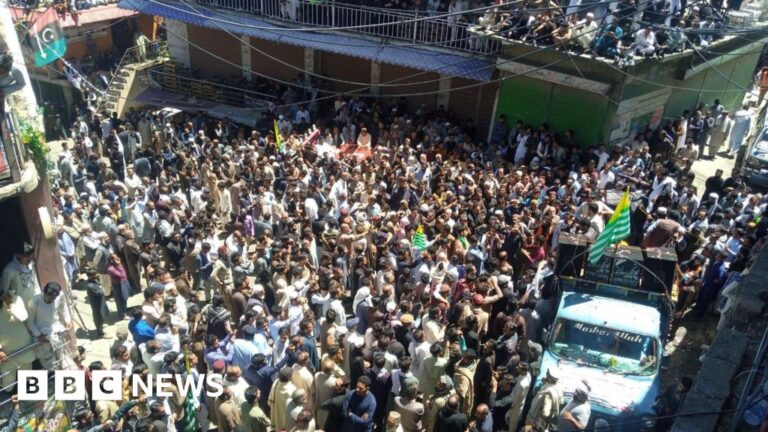image source, Mahtab Ashraf
- author, Kelly Ng
- role, bbc news
Violence disrupted protests against price hikes in Pakistan-administered Kashmir, leaving three people dead and 100 injured, authorities said, entering its fifth day on Tuesday.
Thousands of people have taken to the streets since Friday to protest soaring prices for flour and electricity.
Pakistan Prime Minister Shehbaz Sharif on Monday offered subsidies worth 23 billion rupees ($83 million, £65 million), but that did not quell fears.
Protests have intensified since last weekend, prompting authorities to suspend mobile phone service. Schools, public transportation, and businesses were also suspended.
The arrest of protest leaders spurred the riots.
On Monday, authorities sent paramilitary forces known as Rangers to the regional capital, Muzaffarabad.
Footage from the protests shows both sides hitting each other with sticks. According to reports, militia groups fired bullets and sprayed tear gas at the demonstrators.
Officials said one of the three people killed was a police officer.
At least two of the three casualties died from gunshot wounds, AFP news agency reported, citing a doctor at a coalition hospital in Pakistan.
”[The rangers] They should not have fired at the protesters. We just asked for our rights and in return they showered us with bullets,” shop owner Muhammad Qasim, 37, told AFP.
The Awami Joint Action Committee, the activist group that started the protests, declared Tuesday a “Black Day” to honor those who died.
Kashmir, administered by Pakistan, is a semi-autonomous region with its own regional government.
Kashmir has been a source of conflict between India and Pakistan for more than 70 years.
Both Delhi and Islamabad claim much of the Himalayan region and have fought two wars and a limited conflict over Kashmir. Currently, neighboring countries control only part of it.

